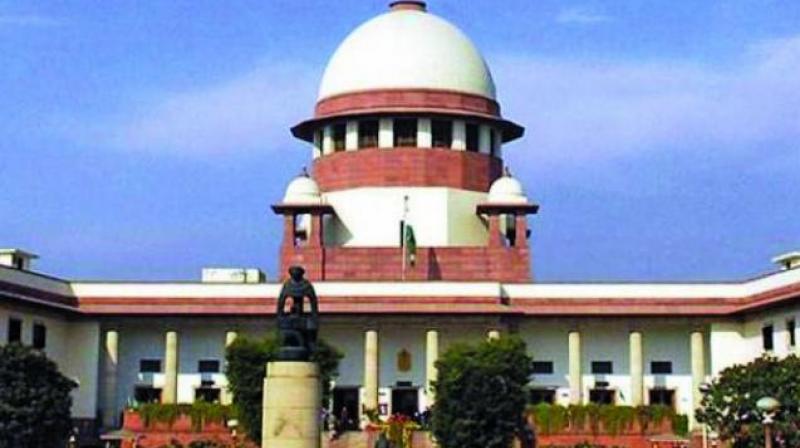Sunni Wakf Board: Why are we only questioned?

New Delhi: The Sunni Wakf Board on Monday asked why they alone were being asked questions in the course of their submission to the Supreme Court’s constitution bench, while such inquiry was missing when arguments on behalf of the idol of Ram Lalla were being advanced.
Sunni Wakf Board said this to the five-judge constitution bench headed by Chief Justice Ranjan Gogoi as there were a number of questions from the bench and senior counsel Rajeev Dhavan laboured to explain to the court that all through, ever since 1886 till 1989, Hindus had a “very limited” right to offer prayers at Ram Chabutra and Sita-ki-Rasoi. And it was only in 1989 that a claim to the title of the disputed site was made by the Hindu side. “One thing I like the most about the hearings is that not one question was put to the other side (Hindus side). All the questions were directed at us (Muslim side),” Mr Dhavan said he tried to respond to each of the questions that were largely coming from Justice S.A. Bobde, Justice D.Y. Chandrachud and Justice S. Abdul Nazeer.
Responding to a question from the bench as he was making submission on the prescriptive rights of the Hindus to offer prayers at Ram Chabutra and Sita-Ki-Rassoi, Mr Dhavan suddenly said, “All questions are directed at us, never to them (Hindu side)... Have they ever been asked for their prescriptive rights?”
As Mr Dhavan said this, senior counsel representing the Hindus raised an objection.
The five-judge constitution bench is hearing a batch of cross petitions challenging the 2010 Allahabad high court judgement on the title suit. The high court had divided the disputed site in three parts — giving two to idol of Ram Lalla and Nirmohi Akhara and one part to Muslims.
Hammering the point that Hindus only had the right to offer worship at Ram Chabutra and, till 1987, they never claimed the title of the disputed site, Sunni Wakf Board told the court that the first Hindus claim to the disputed site was rejected way back in 1886 by the then commissioner’s court which granted them a “very limited right” to offer prayers at Ram Chabutra.
Telling the Constitution bench that all through Hindus have been seeking the right to offer prayers — which they were performing at Ram Chabutra — and it was only in 1989, when Ram Janmabhoomi Nyas projected to construct a new temple devoted to Lord Rama, that a suit was filed on behalf of idol of Ram Lalla, staking claim to the title of the dispute site.
Monday was the 38th day of the hearing that commenced on August 6, after attempts to find an amicable solution to the dispute through mediation did not produce any result.
Advancing arguments on their claim to the title of the disputed site, which Sunni Wakf Board said was in their continued possession since 1528 when Babri Mosque was constructed, senior counsel Rajeev Dhavan relied on the documents showing that they were getting grants from the state, both during Mughal period and later by the British administration, for the upkeep of the mosque.

